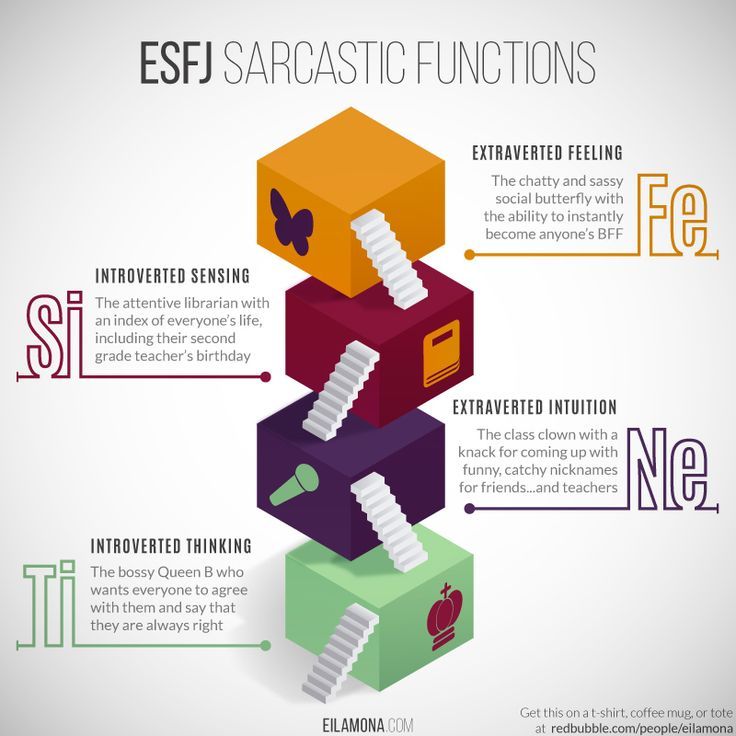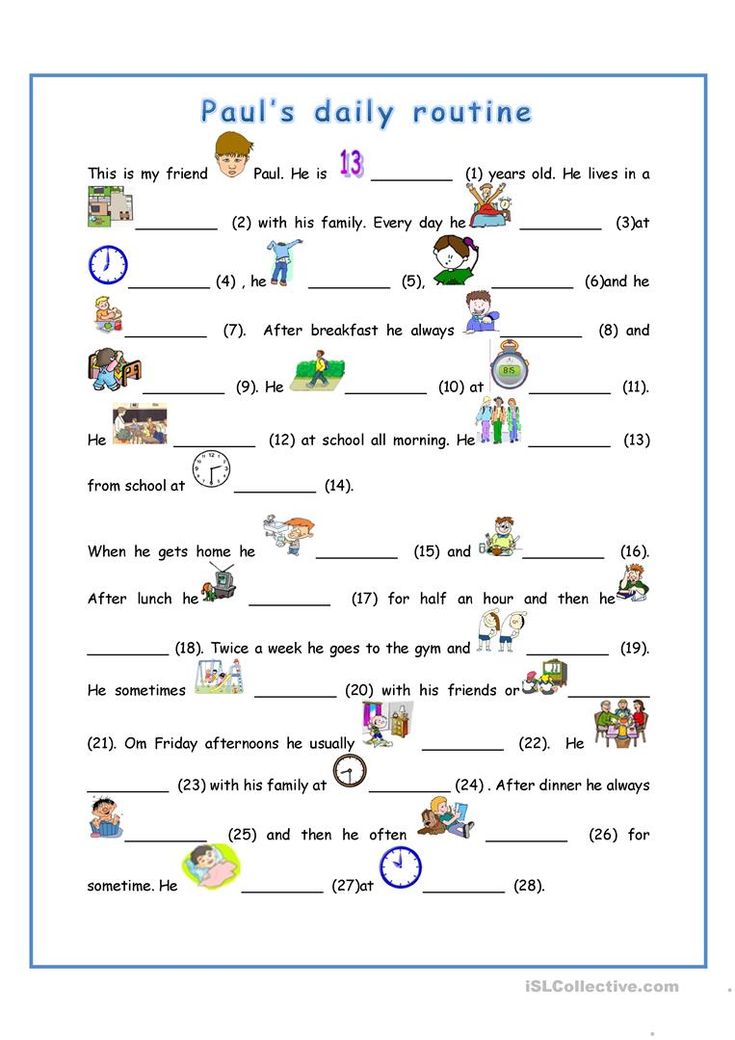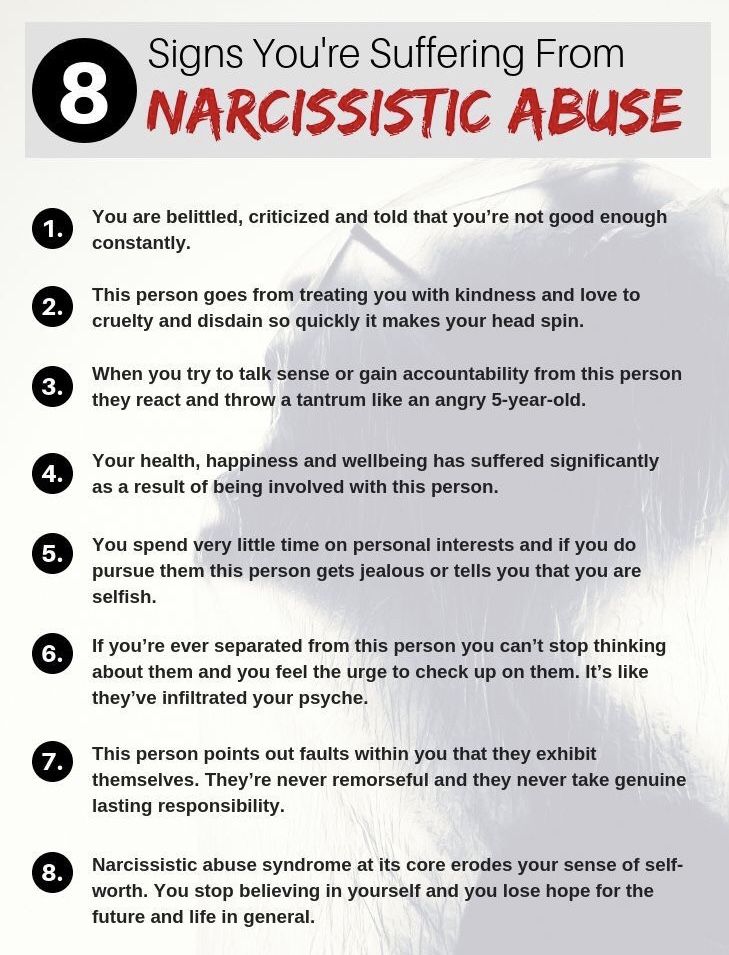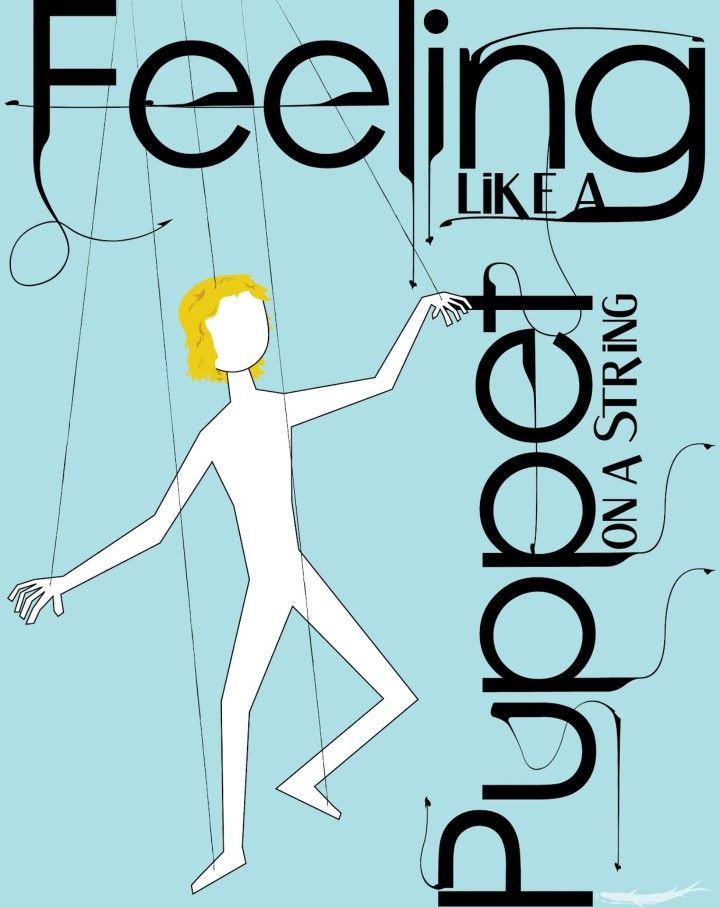How to cope with panic attacks
How to deal with panic attacks
A panic attack is a feeling of sudden and intense anxiety.
Panic attacks can also have physical symptoms, including:
- shaking
- feeling disorientated
- nausea
- rapid, irregular heartbeats
- dry mouth
- breathlessness
- sweating
- dizziness
The symptoms of a panic attack are not dangerous, but can be very frightening.
They can make you feel as though you're having a heart attack, or that you're going to collapse or even die.
Most panic attacks last somewhere from 5 minutes to half an hour.
How to handle a panic attack
Professor Paul Salkovskis, Professor of Clinical Psychology and Applied Science at the University of Bath, says it's important not to let your fear of panic attacks control you.
"Panic attacks always pass and the symptoms are not a sign of anything harmful happening," he says. "Tell yourself that the symptoms you're experiencing are caused by anxiety. "
He says don't look for distractions. "Ride out the attack. Try to keep doing things. If possible, it's important to try to remain in the situation until the anxiety has subsided."
"Confront your fear. If you don't run away from it, you're giving yourself a chance to discover that nothing's going to happen."
As the anxiety begins to pass, start to focus on your surroundings and continue to do what you were doing before.
"If you’re having a short, sudden panic attack, it can be helpful to have someone with you, reassuring you that it will pass and the symptoms are nothing to worry about," says Professor Salkovskis.
Breathing exercise for panic attacks
If you’re breathing quickly during a panic attack, doing a breathing exercise can ease your other symptoms. Try this:
- breathe in as slowly, deeply and gently as you can, through your nose
- breathe out slowly, deeply and gently through your mouth
- some people find it helpful to count steadily from 1 to 5 on each in-breath and each out-breath
- close your eyes and focus on your breathing
You should start to feel better in a few minutes. You may feel tired afterwards.
You may feel tired afterwards.
Visit the No Panic website for another breathing exercise to calm panic.
Ways to prevent panic attacks
"You need to try to work out what particular stress you might be under that could make your symptoms worse," says Professor Salkovskis. "It's important not to restrict your movements and daily activities."
Do
- practice breathing exercises every day to help prevent panic attacks and relieve them when they happen
- practice regular exercise, especially aerobic exercise, to help you to manage stress levels, release tension, improve your mood and boost confidence
- eat regular meals to stabilise your blood sugar levels
- avoid caffeine, alcohol and smoking – these can make panic attacks worse
- try a panic support groups to get useful advice about how to manage your attacks – your GP can put you in touch with groups in your area
- try cognitive behavioural therapy (CBT) to identify and change the negative thought patterns that are feeding your panic attacks
Is it panic disorder?
If you feel constantly stressed and anxious, particularly about when your next panic attack may be, you may have panic disorder.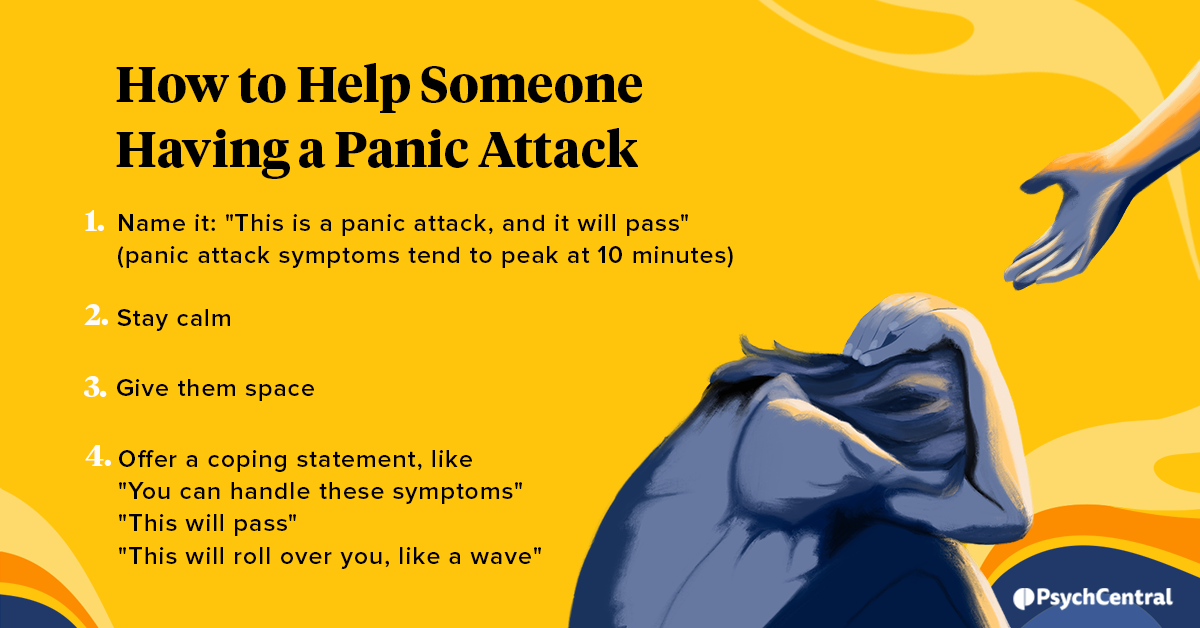
People with panic disorder may avoid situations that might cause a panic attack. They may also fear and avoid public spaces (agoraphobia).
"There's no quick fix, but if your attacks are happening time after time, seek medical help," says Professor Salkovskis.
Read more about panic attacks, including personal stories, at See Me Scotland
Source: Health Scotland - Opens in new browser window
Last updated:
05 January 2023
How can we improve this page?
Help us improve NHS inform
Don’t include personal information e.g. name, location or any personal health conditions.
Email Address e.g. [email protected]
Message Maximum of 500 characters
Community content from Health Unlocked - This will open in a new window.
Search for anxiety and panic services
Enter a place or postcodeWhat They Are, How to Stop, and More
Panic attacks can be scary and may hit you quickly. Here are 12 strategies you can use to try to stop or manage panic attacks. Some may help you in the moment, while others can help in the longer term.
1. Seek
counselingCognitive-behavioral therapy (CBT) and other types of counseling can often help people who have panic attacks and who have panic disorders. CBT aims to help you change the way you see challenging or frightening situations and to help you find new ways to approach these challenges as they arise.
You can find CBT for individuals or groups, online or face-to-face, and the length of treatment can also vary. In exposure-based CBT, your therapist will expose you to something that can trigger a panic attack and help you work your way through it.
As well as changing behavior, there is some evidence that CBT might affect structures in your brain that are responsible for panic symptoms.
In 2018, some researchers found evidence that people who attended four weekly sessions of exposure-based CBT experienced changes in the neural pathways involved in panic symptoms. However, this was an early study, and more research is needed.
In 2018, 37 people in Korea attended a mindfulness-based program once a week for 4 weeks, to see if brief treatment would help reduce symptoms of panic disorder. One aspect of the treatment was to focus on their heart rate, as some people experience cardiovascular symptoms during a panic attack.
The findings suggested that the participants could better manage their symptoms using their own thought processes after the treatment. However, this was a small study, and there was no control group. More research is needed to find out how effective short-term therapy can be.
2. Take medications
Benzodiazepines, such as alprazolam (Xanax), can help treat the symptoms of panic when they occur.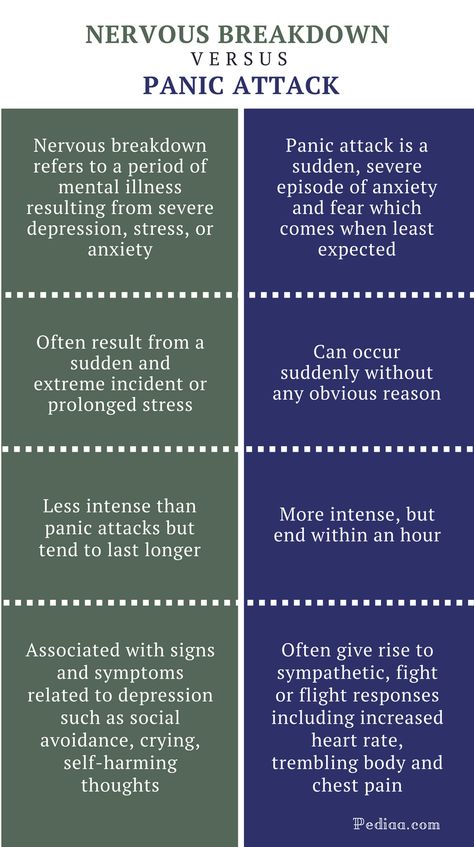
However, they won’t help treat an underlying anxiety disorder and can quickly lead to dependence. For this reason, doctors only recommend them for short-term use during a crisis.
Because benzodiazepines are a prescription medication, you’ll likely need a panic disorder diagnosis to have the medication on hand.
In some cases, a doctor may prescribe anti-depressants for long-term use. Examples include:
- selective serotonin reuptake inhibitors (SSRIs), such as escitalopram (Lexapro) or fluoxetine (Prozac)
- serotonin-norepinephrine reuptake inhibitors (SNRIs), such as duloxetine (Cymbalta)
- anti-anxiety drugs, for instance, azapirone (Buspirone)
Some anti-seizure medications, such as pregabalin or clonazepam, can also help treat anxiety.
Which drugs can treat anxiety disorder?
3. Use deep breathing
While hyperventilating is a symptom of panic attacks that can increase fear, deep breathing can reduce symptoms of panic during an attack.
In one study, published in 2017, 40 people joined either a therapy group that involved deep or diaphragmatic breathing or a control group. After 20 intensive training sessions, those who practiced deep breathing saw improvements in their attention levels and emotional well-being.
Blood tests also showed lower cortisol levels in this group, suggesting lower levels of stress. The participants did not have panic disorder, but the strategies could help people who have panic attacks.
Another group of scientists found that slow breathing could have similar effects. They suggested it could also improve feelings of relaxation, comfort, and alertness and reduce symptoms of arousal anxiety, depression, anger, and confusion.
If you’re able to control your breathing, you’re less likely to experience the hyperventilating that can make other symptoms — and the panic attack itself — worse.
Focus on taking a deep breath in through your nose, feeling the air slowly fill your chest and belly.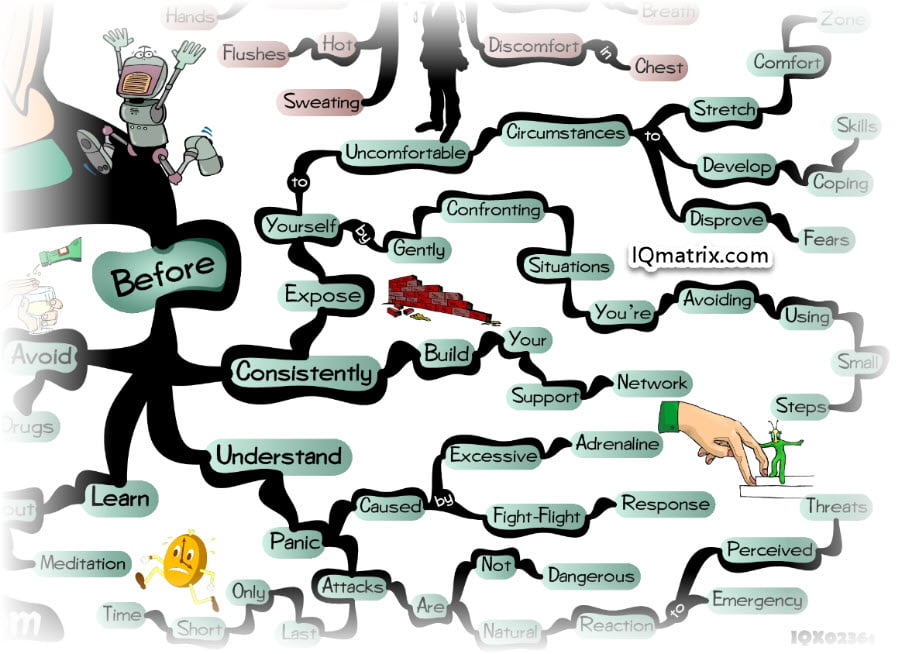 Then slowly exhale through your mouth and feel the air leave your body. Breathe in through your nose for a count of four, hold for a second, and then breathe out through your nose for a count of four:
Then slowly exhale through your mouth and feel the air leave your body. Breathe in through your nose for a count of four, hold for a second, and then breathe out through your nose for a count of four:
What is diaphragmatic breathing and how do you do it?
4. Recognize that you’re having a panic attack
By recognizing that you’re having a panic attack instead of a heart attack, you can remind yourself that this is temporary, it will pass, and that you’re OK.
Take away the fear that you may be dying or that impending doom is looming, both symptoms of panic attacks. This can allow you to focus on other techniques to reduce your symptoms.
It is not always possible to avoid triggers for a panic attack, but if you know what triggers it, this can help you understand that it is a panic attack and not something else.
5. Close your eyes
Some panic attacks come from triggers that overwhelm you. If you’re in a fast-paced environment with a lot of stimuli, this can feed your panic attack.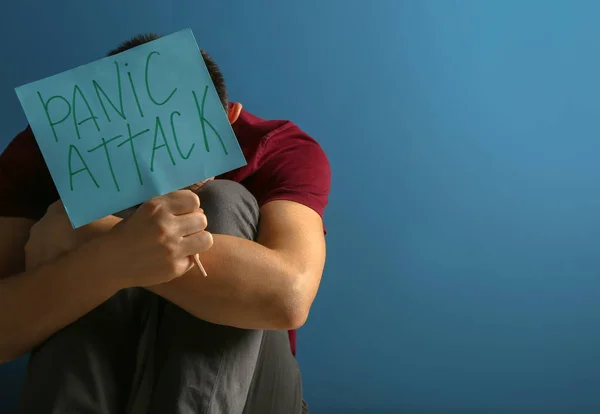
To reduce the stimuli, close your eyes during your panic attack. This can block out any extra stimuli and make it easier to focus on your breathing.
6. Practice mindfulness
Mindfulness can help ground you in the reality of what’s around you. Since panic attacks can cause a feeling of detachment or separation from reality, this can combat your panic attack as it’s approaching or actually happening.
Mindfulness involves:
- focusing your attention on the present
- recognizing the emotional state you’re in
- meditating to reduce stress and help you relax
Focus on the physical sensations you are familiar with, like digging your feet into the ground or feeling the texture of your jeans on your hands. These specific sensations ground you firmly in reality and give you something objective to focus on.
Experts say that mindfulness strategies, such as meditation, can help manage anxiety symptoms, although it’s not clear they can treat an underlying anxiety disorder.
American Family Physician recommended mindfulness as a strategy for dealing with panic and anxiety in 2015, saying it can be as helpful for reducing stress as CBT and other behavioral therapies.
Some research has suggested that mindfulness-based cognitive therapy could help people with anxiety disorders who are receiving medical treatment but haven’t found drug treatment helpful.
Online meditation options
Read our review of the best online meditation options to help find the right fit for you.
7. Find a focus object
Some people find it helpful to find something to focus all their attention on during a panic attack. Pick one object in clear sight and consciously note everything about it possible.
For example, you may notice how the hand on the clock jerks when it ticks, and that it’s slightly lopsided. Describe the patterns, color, shapes, and size of the object to yourself. Focus all your energy on this object, and your panic symptoms may subside.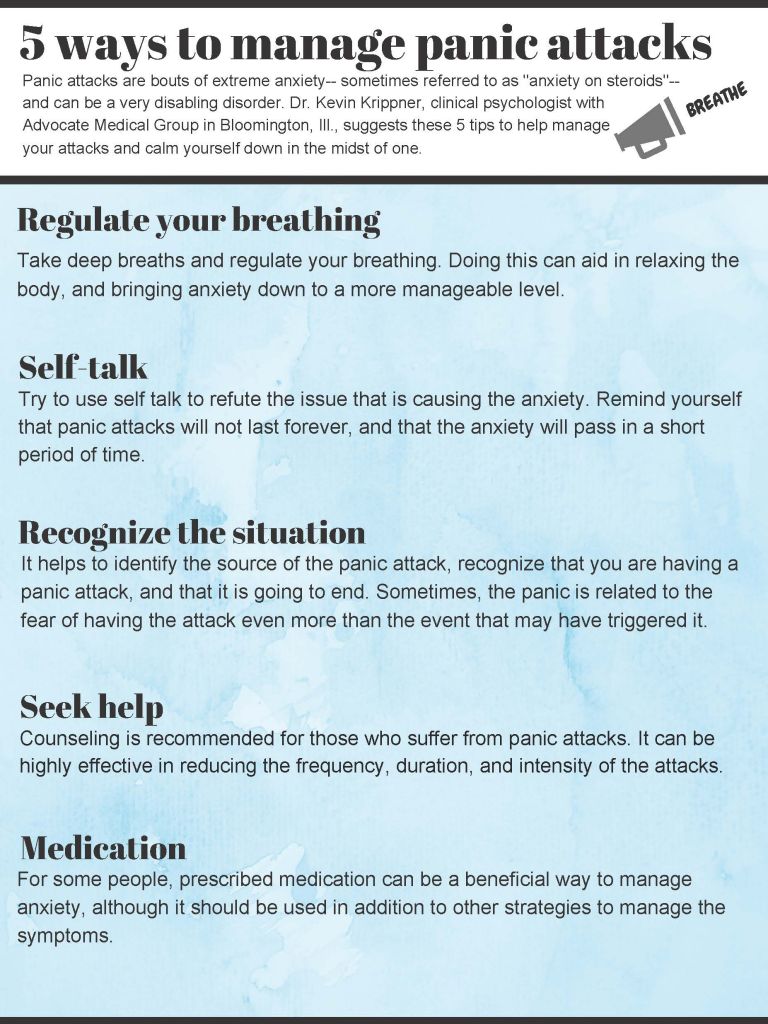
8. Use muscle relaxation techniques
Muscle tension is a symptom of anxiety, and muscle relaxation techniques can help reduce tension and promote relaxation during an attack. Progressive muscle relaxation aims to release tension in one group of muscles at a time to relax the whole body.
Much like deep breathing, muscle relaxation techniques can help stop your panic attack in its tracks by controlling your body’s response as much as possible.
If you attend muscle relaxation therapy, your therapist might take you through the following steps:
- First, you may learn how to tense the muscles before releasing the tension.
- Then, you will learn how to relax the muscles without tensing them first.
- You may also learn how to relax specific sets of muscles, for example, in the shoulders, for practical use in everyday situations.
- Finally, you may learn how to practice rapid relaxation, when you can identify any areas of tension and release it as needed.

To start relaxing your muscles at home, consciously relax one muscle at a time, starting with something simple like the fingers in your hand, and move your way up through your body.
Muscle relaxation techniques will be most effective when you’ve practiced them beforehand.
9. Picture your happy place
Guided imagery techniques can help reduce stress and anxiety. Research suggests that both spending time in nature and visualizing nature can help treat and manage anxiety.
What’s the most relaxing place in the world that you can think of? A sunny beach with gently rolling waves? A cabin in the mountains?
Picture yourself there and try to focus on the details as much as possible. Imagine digging your toes into the warm sand, or smelling the sharp scent of pine trees.
This place should be quiet, calm, and relaxing — no streets of New York or Hong Kong, no matter how much you love the cities in real life.
Here, learn about five visualization techniques that can help you meditate.
10. Engage in light exercise
Research shows that regular exercise can not only keep the body healthy but boost mental well-being, too.
Experts have found that exercising at 60 to 90 percent of your maximum heart rate for 20 minutes three times per week can help reduce anxiety.
If you are not used to exercising, talk with your doctor before starting. There is some evidence that starting aerobic exercise anew can trigger additional anxiety in people with an anxiety disorder. Building up gradually can help your body adjust and avoid breathing problems. Aerobic exercise includes activities such as running on a treadmill.
If you feel stressed or you’re hyperventilating or struggling to breathe, stop and take a rest or choose a more moderate option, such as walking, swimming, or yoga.
11. Keep lavender on hand
Lavender is a traditional remedy that many people use to reduce stress and help them relax.
Research suggests it has a calming effect but doesn’t lead to dependence or cause withdrawal symptoms.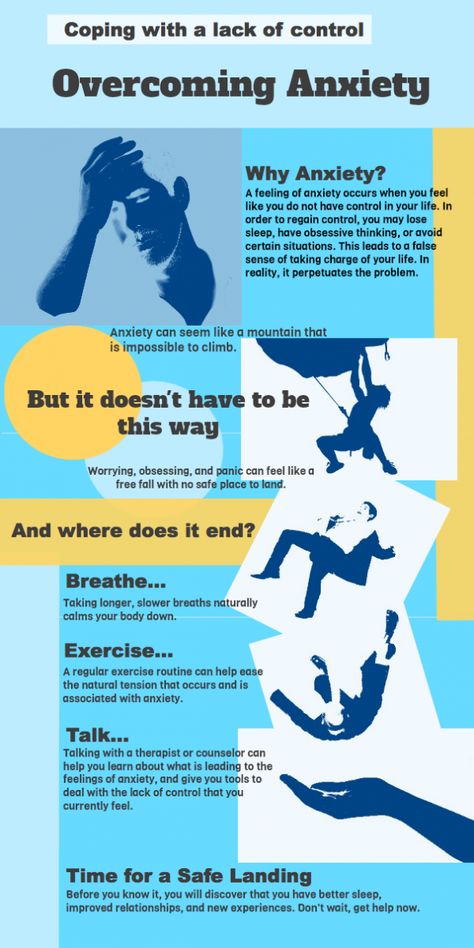 Using products that contain diluted lavender oil may help reduce or manage symptoms of anxiety.
Using products that contain diluted lavender oil may help reduce or manage symptoms of anxiety.
However, the Food and Drug Administration (FDA) does not regulate essential oils, and strengths and ingredients vary widely.
If you use lavender essential oil, make sure you:
- get your oil from a reputable source, such as a pharmacy
- follow the instructions for use
- avoid applying concentrated oil directly to the skin
- avoid using lavender with benzodiazepines because the combination can cause intense drowsiness
While research suggests there are health benefits, the FDA doesn’t monitor or regulate the purity or quality of essential oils. It’s important to talk with a healthcare professional before you begin using essential oils and be sure to research the quality of a brand’s products. Always do a patch test before trying a new essential oil.
Which essential oil is right for you?
12. Repeat a mantra internally
Repeating a mantra internally can be relaxing and reassuring, and it can give you something to grasp onto during a panic attack.
Whether it’s simply “This too shall pass,” or a mantra that speaks to you personally, repeat it on loop in your head until you feel the panic attack start to subside.
Panic attacks are sudden, intense surges of fear, panic, or anxiety. They are overwhelming, and they have physical as well as emotional symptoms.
If you have a panic attack, you might find you have difficulty breathing, you sweat profusely and tremble, and you may feel your heart pounding.
Some people will also experience chest pain and a feeling of detachment from reality or themselves during a panic attack, so they may think they’re having a heart attack. Others have reported feeling like they are having a stroke.
Causes
Panic attacks can happen for various reasons, and sometimes they happen for no apparent reason.
You’re more likely to experience them if you:
- have panic disorder
- have another anxiety disorder
- use certain substances or have a substance use disorder
- use certain medications
- have a medical condition, such as an overactive thyroid
- have a condition that involves psychosis
A panic attack often happens when you’re exposed to a trigger, but triggers vary widely between people. In some cases, there may be no clear trigger.
In some cases, there may be no clear trigger.
However, some people find that the following can trigger an attack:
- social events
- public speaking
- conflict
- situations that remind you of past or current stress in your life
Here, learn more about the causes and triggers of panic attacks.
Symptoms
The Diagnostic and Statistical Manual of Mental Health Disorders, Fifth Edition (DSM-5) defines a panic attack as “an abrupt surge of intense fear or discomfort.”
They tend to start without warning, and symptoms reach a peak within minutes.
If you have a panic attack, here are some of the symptoms you might experience:
- a pounding heart, palpitations, or rapid heart rate
- sweating
- shaking or trembling
- difficulty breathing or feeling as if you are choking or being smothered
- chest pain or discomfort
- nausea or stomach upset
- feeling dizzy, light-headed, or faint
- feeling unsteady
- chills or feeling hot
- numbness or tingling
- feelings as if things are unreal
- feeling detached from yourself.
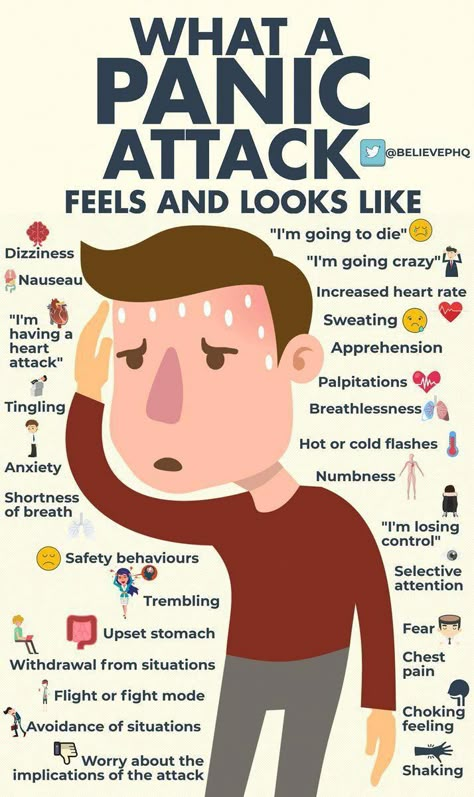
- fear of losing control or “going crazy”
- fear of dying
It is not always possible to prevent a panic attack, but the following tips may help:
- do breathing exercises every day
- get regular exercise
- follow a diet that is low in added sugar and eat regularly to avoid glucose spikes
- avoid caffeine, smoking, and alcohol, as they may make anxiety worse
- seek counseling and other professional help
- ask your doctor about local support groups
Avoiding specific triggers may help prevent a panic attack, but this may not always be possible or appropriate. Some experts encourage people to “ride out” the attack and continue doing things, if possible.
However, if a situation is likely to cause severe distress, consider waiting until you’ve worked with a professional to develop skills and strategies to help you cope.
If you have concerns about panic attacks, consider talking with a doctor, especially if:
- You have one or more panic attacks and continue to worry about panic attacks for a month or longer.

- You find yourself changing your behavior after an attack.
- Your concerns or feelings of fear or anxiety are affecting your work, studies, or daily life.
Many people experience panic attacks, in which they suddenly feel anxious and not in control of a situation, possibly without knowing why.
You may feel breathless or as if you are having a heart attack, and it can be very frightening.
Panic attacks can occur unexpectedly and have a significant impact on your daily life, but there are ways to manage them. Treatment is also available for panic and anxiety disorders, which may be an underlying condition.
If you have concerns about panic attacks, speak with your doctor. They can help you work out a suitable strategy to manage symptoms and reduce the impact. This may involve medications, such as antidepressants, alongside counseling.
Read this article in Spanish.
Psychologist told how to cope with panic attacks - Moscow 24, 04/11/2022
Many residents of megacities could have a feeling in which they were seized by panic fear and anxiety in a short period of time.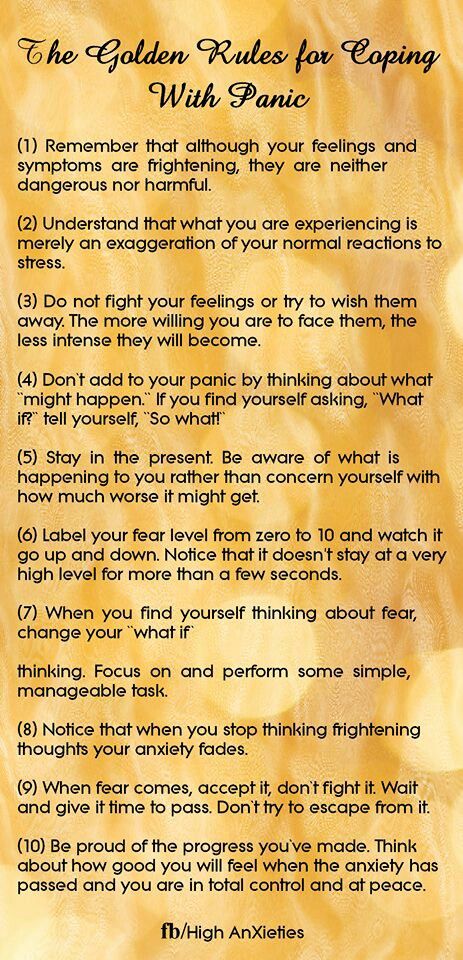 At the same time, for some, it is still accompanied by a feeling of lack of air, a strong heartbeat, nausea, or a sharp increase in pressure. These are all signs of a panic attack. About why residents of big cities suffer from this disease and how to cope with it, tells the family psychologist, supervisor Anna Devyatka.
At the same time, for some, it is still accompanied by a feeling of lack of air, a strong heartbeat, nausea, or a sharp increase in pressure. These are all signs of a panic attack. About why residents of big cities suffer from this disease and how to cope with it, tells the family psychologist, supervisor Anna Devyatka.
Photo: depositphotos/photographee.eu
We live in a situation of background stress, when everyone around is in a hurry and rushing other people: the report must be submitted yesterday and in order to communicate with a friend, many first send him an SMS message : "Are you comfortable talking?"
In other words, a person living in the city experiences loneliness in the crowd and endures a huge amount of stress, relying mostly on himself.
All this leads to nervous overexertion and, as a consequence, the creation of the prerequisites for a panic attack (PA). It occurs almost instantly and, despite the fact that it passes quickly, leaves an indelible impression and is remembered for years.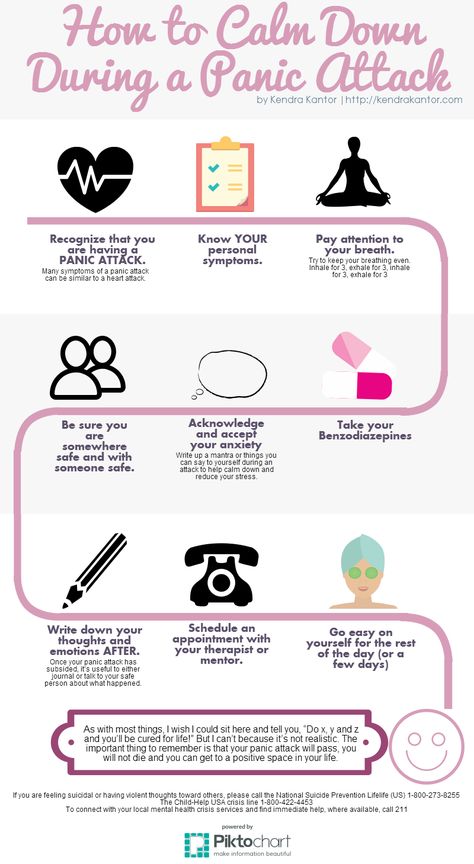 At the same time, due to hormonal characteristics, women are four times more at risk than men.
At the same time, due to hormonal characteristics, women are four times more at risk than men.
Alena's story
Photo: depositphotos/focuspocusltd
My friend, let's call her Alena, was walking down the escalator and suddenly felt a panic attack, a rapid heartbeat, nausea and intense pressure in her head. It was an unfamiliar feeling for her. The girl says that at that moment she was seized with a stupor, and even in order to take a normal step from the escalator, she needed to make an effort on herself.
It seemed to Alena that the ceiling was about to fall on her. She was seized with an irrational fear, and she wanted to quickly get out into the street or ask for help. But she could not do it, because her tongue went soft and she only had enough strength to breathe. At the same time, it is not clear what kind of help to ask for, because the girl did not understand what was happening to her, because a minute ago everything was in order.
In a panic state, a rapid increase in fear in a short period of time is characteristic, to which additional unrest is added that intensifies the panic. It is the fear of dying, going crazy and losing control. Moreover, outside of a panic attack, they are absent, and it is by their presence that it is possible to understand that this is exactly PA, and not a stroke or an attack of hypochondria, which is also accompanied by a state of fear and an increased heartbeat.
It is the fear of dying, going crazy and losing control. Moreover, outside of a panic attack, they are absent, and it is by their presence that it is possible to understand that this is exactly PA, and not a stroke or an attack of hypochondria, which is also accompanied by a state of fear and an increased heartbeat.
What are the reasons?
Chronic stress, increased anxiety, difficult life events can provoke a panic attack. But in the situation with Alena, none of this was observed. At that moment, she liked the job, where she was in demand, and the girl did not complain about relationships with loved ones.
It would seem that there are no reasons for anxiety and worries, which means that there should be no reason for attacks either. However, the girl had an active life period, full of emotions and exciting events - this is also a burden on the psyche and causes experiences that are repressed.
This happens when a person does not know that good events can cause anxiety. Especially if there are a lot of them and they are all new. Life's innovations are always exciting, whether they are good or bad. You have to adapt to them and endure the anxiety of uncertainty - it is always scary and at the same time interesting how this new will fit into life.
Especially if there are a lot of them and they are all new. Life's innovations are always exciting, whether they are good or bad. You have to adapt to them and endure the anxiety of uncertainty - it is always scary and at the same time interesting how this new will fit into life.
However, panic attacks can provoke not only psychological reasons, but also medical ones. They can also be an individual reaction of the body to the drunk energy drink or the components of certain medicines, such as nasal sprays, which many people use heavily during a runny nose.
How to deal with panic attacks?
Photo: depositphotos/photographee.eu
From a psychological point of view, the answer to this question can be divided into two parts: what to do at the time of a panic attack and how to reduce the likelihood that it will happen to you, that is, prevention.
Let's go in order. Once the attack has already taken place, the best thing you can do is to wait until it is over, trying to focus on your breathing. In psychology, it is closely connected with life and is a sign of vitality: if I breathe, then I live - the psyche perceives this way.
It is optimal to use the "square" technique, which automatically connects eye movement and the vestibular apparatus. Due to this, breathing is first restored, and with it the psycho-emotional balance and the normal pace of the heartbeat.
To use the technique, imagine a square in front of you. Mentally find the lower left corner. Inhale for four counts, imagining how you mentally rise from the lower left corner up.
Then exhale, also in four counts, mentally walking along the same side of the square, only down. It turned out such a fat stick, on which you held it up and down. In the same way, you need to draw all the sides of the square, and this will help stop the panic attack.
"Square" is not as easy to understand as it seems at first, so it is better to practice it in advance so that you know what to do at the time of the attack. Exactly the same as understanding that a traffic light is turning green.
If you feel that a panic attack is taking too long, do not hesitate to call an ambulance. In the format of a telephone conversation, doctors give clear instructions on what to do to make it easier. They will be in touch with you and help assess the degree of your condition, and if necessary, they will come.
Photo: depositphotos/sjenner13
Prevention is very important in the treatment of panic attacks. From the point of view of emotional intelligence, it is about the ability to deal with one's own fears and anxieties, recognize and neutralize them as early as possible. So, fear is always specific and, having deciphered its cause at an early stage, a person is able to take actions to eliminate it, for example, move away from it.
Anxiety is always full of emotional excitement and symbolizes something uncertain in the future. In order to cope with it, a person needs to be "here and now" and illuminate all areas of uncertainty with an emotional flashlight in order to see what is hard to see as clearly as possible. Thus, you can find yourself in a world where there is a lot of understandable, and therefore supportive, where anxiety and fear recede before clarity and certainty.
From the point of view of physiology, prevention will be sports, aimed at strengthening the cardiovascular system and the vestibular apparatus, as well as respect for one's health and timely access to doctors.
It is important to say that panic attacks are always body signals to pay attention to their emotional and physiological state. These are the signs that something needs to be changed, to think about how you can more carefully build life processes and relieve yourself of an extra load by sharing it with those who are nearby. Take care of yourself!
Nine Anna
society
How to deal with panic attacks: 12 steps
354 611
Know yourself
Three years ago, at the age of 30, I had a hypertensive crisis. I ended up in the hospital straight from work. I was examined, but the reasons for high pressure were never found. After that, I was very scared, I began to invent all sorts of sores for myself, which doctors do not know about.
As in J.K. Jerome, I had—in my own opinion—everything but puerperal fever. I went around polyclinics in the tenth circle, terrorizing all possible doctors. On the advice of friends, I went to a fortune teller. The extortionist said that I had nothing left to live. They say I have a very strong evil eye on me, and only a large amount of money given to her will save me. Her husband then almost killed her.
I had panic attacks and began to choke. I was able to walk through the underground passages only by talking on the phone with my husband - it was easier for me that way.
And then I stopped sleeping. I slept for 30 minutes in the morning. This went on for almost six months. I walked around like a zombie with bruises under my eyes.
I went to a psychologist for almost a year, took antidepressants, learned all about ways to relax
Classic anxiety neurosis. Not fatal, but very annoying. But it was even worse for my husband. If the bar of requirements for me at work fell a little, then he, who helped me at night, had to give all the best during the day in full.
At the same time, I continued to work. And I worked as the head of the logistics department, controlling the entire cargo flow for a large importing company. And although the root of my problems was obvious - my nervous and very stressful work, I could not refuse the financial component.
I was constantly looking for the causes of my condition. I read everything I could get my hands on: Louise Hay, Sinelnikova, Osho, Reality Transsurfing, books on psychology and, of course, your magazine. I went to a psychologist for almost a year, took antidepressants, learned everything about relaxation methods: from Jacobson relaxation to holotropic breathing. I read positive affirmations: self-hypnosis formulas that help a person tune his mind to a positive wave. I signed up for yoga and fell in love with it, meditated twice a day, practiced breathing, painted.
It started with the fact that I completely stopped wearing black in clothes
And gradually - not in one month - my fears began to recede. It started with the fact that I completely stopped wearing black in clothes. And if before that my wardrobe was all in gray and black, now my favorite is coral! I have glasses, a bag, scarves, shoes and polish in this shade. I have a lot of dresses in pastel colors: trendy shades of nude, blue, pistachio. I now physically feel how dark tones press.
Every morning I started with Sun Salutations, a cycle of yoga exercises, and breathing exercises.
Like the character in Elizabeth Gilbert's Eat, Pray, Love, I only walked on the sunny side of the street. Over time, I learned to sleep without pills and quickly relax.
Now I enjoy every day of my life. (No matter how trite it may sound.)
I serve a beautiful and healthy breakfast, drink the most expensive coffee with cream.
I smile often and pay more attention to other people.
I am talking to my friends again. But in the days when I felt bad, I withdrew into myself and I didn’t care about anyone.
I look at the world with wide eyes and expand my horizons. I say yes!" everything new and interesting.
I know that all difficulties are temporary. And most of them are in our heads.
I no longer watch medical programs or read relevant websites on the Internet. I no longer carry a ton of drugs with me, from validol and captopril to stimulatone (antidepressant). I believe in myself, in destiny, in goodness.
What about work? I quit on New Year's Eve. I realized that I had reached my limit. Now my first priority is family, good health and high spirits. And money? Money will come. But fortunately it doesn't have much to do with it. After all, the most important thing is you and your loved ones.
I quit my previous job.I am now a freelancer and translator
I am now a freelancer and translator. I write articles and even books. Registered as an individual entrepreneur. Every day I perceive as a luxurious gift of fate, in which there are many precious and touching moments. I try to be outdoors more.
Now my beloved husband, when he comes home, has dinner with delicacies prepared by his wife, and not with products from the nearest cookery. Our relationship has changed for the better. If earlier I would come home late and then come to my senses for another two hours, talking about the events of the day at work, now I, resting my cheek, carefully listen to my husband. Before he comes, I do meditation. And in the evening, a satisfied, relaxed wife is waiting for her husband. Sex? Much more often and with pleasure, and not twisted thoughts somewhere there at the customs ...
My wonderful husband, love of life, yoga and your magazine helped me find and understand myself, live better and breathe deeply.
Why is this happening?
Arina Lipkina, psychologist
Panic disorder often develops as a reaction of the body and mind to stress, to exceeding our capabilities. In this case, the reader has a successful combination for treatment: her own active approach to mastering relaxation practices, the search for individually working methods, reading literature (information, influencing thinking), dismissal from employment (which not everyone decides on and that not everyone can afford allow) and a new freelance activity - with the support of her husband, I assume.
The author of the letter has put in a lot of effort and now maintains a new lifestyle and attitude towards her mental health. A person did not just take pills and hope for a miracle, or that "it will pass by itself." This deserves praise and respect - not everyone is capable of such work on themselves without outside help.
We may not always realize that we are under severe stress, but our body gives signals when resources are running out. Panic attacks are one such signal. Their symptoms are extremely unpleasant. An attack can catch you anywhere - at work, on the subway or in a car.
Here are some simple tips to help relieve unpleasant symptoms.
What to do?
12 Steps for Panic Attacks
1. Drink 100-150 g of cold water.
2. Start saying everything you do out loud. Talk to yourself, support yourself, encourage yourself.
3. Do a deep breathing exercise with the MyCalmBeat app.
4. If you are in a car or no one can see you, turn on the music and start singing.
5. Rub your hands until warm in the palms, shake your hands (as if you want to shake off), it is good to have a studded massage rubber ball for hands. Squeeze the ball, roll between the palms.
6. On the contrary, try to cool your face. You can open a window in the car, turn on cold air from a simple table fan in the room, wash your face several times with cold water, and use a spray bottle with water outside.
7. Completely relax your body (if possible, it is better to sit or lie down), as if it has become weightless, airy, close your eyes, turn on the music. Carry earphones for your phone and a music collection in your phone.
8. Switch your mind to solving problems: if you are driving, look at the map and think about how you can form a route on your own without a navigator (anywhere, to another city). Learn a foreign language, repeat words, phrases recorded in advance on a voice recorder or in an application on your phone. Carry a crossword puzzle or work/school notes with you. You can draw or color blanks (coloring). The normal game of tetris also takes your mind away from the attack.
9. If possible, call / start talking to someone about something pleasant and preferably exciting, so that the topic affects you emotionally and positively.
10. If there is an animal at home, touch and talk to it. Contact with animals in general helps a lot. With your own or others.





